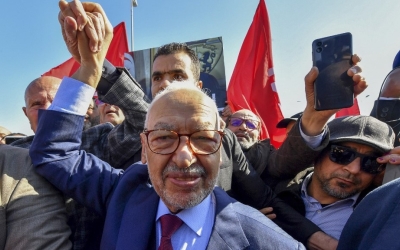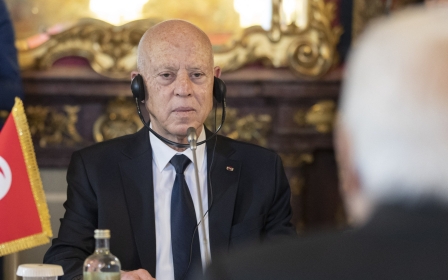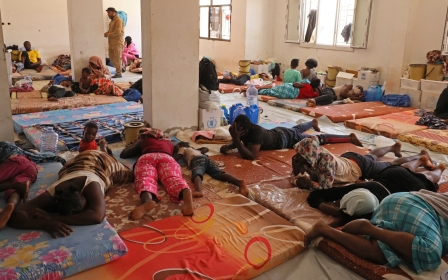African court orders Tunisia to allow legal access to political prisoners

The African Court on Human and People's Rights (AfCHPR) ordered the Tunisian government on Friday to allow detained political prisoners access to their lawyers and doctors.
The court has given the Tunisian government 15 days to "eliminate all barriers" political prisoners face, which also includes the high profile former speaker of parliament Rached Ghannouchi.
The decision by the court, which is headquartered in Tanzania, followed a case filed in May by the families of detained prisoners.
Before giving a full written ruling on whether the detainees should be released, the court asked Tunisian authorities for further information about their case.
The court has found that the continued detention of the individuals could result in "irreparable harm" and that they are in a situation of "imminent danger".
Stay informed with MEE's newsletters
Sign up to get the latest alerts, insights and analysis, starting with Turkey Unpacked
In the ruling, the court also ordered the Tunisian government to inform political detainees, their families and lawyers of the reasons for their continued detention, specifically to provide them with "adequate information and facts relating to the legal and factual basis for the detention".
The court also held that "the procedures followed in the arrest and imprisonment of the [detainees] are not clear especially in terms of clarifying the charges that they are answering".
Finally, the court has made it clear that "the danger faced by the four [detainees] is real and not hypothetical".

Tunisian President Kais Saied unilaterally suspended parliament and dissolved the government in July 2021, a move he marketed as a step towards "true democracy", involving a clean break with the political class, the institutions and "corrupt elites".
He then gradually gathered vast, unchecked powers, which were later enshrined in a tailor-made constitution by which, says the opposition, Saied paved the way for a "disgraceful dictatorial regime".
Saied's power grab in 2021 ushered in a campaign of detentions that has swept through the political opposition and the judiciary.
An increasingly repressive society and a rapidly escalating economic crisis have led to a surge in people fleeing the country along dangerous smuggling routes.
As a fiery populist, Saied billed himself as an outsider who could take on Tunisia's political parties, which oversaw growth in democracy but also mounting economic challenges in the country of 12 million.
Despite promises to correct the downward trajectory, Saied has overseen skyrocketing inflation and shortages of basic goods. Early this year, he rejected an IMF loan that economists say is necessary to prevent the country's economic collapse, claiming the lender was issuing "diktats from abroad".
The US and its western partners have vacillated between scolding and engaging Saied.
This article is available in French on Middle East Eye French edition.
Middle East Eye delivers independent and unrivalled coverage and analysis of the Middle East, North Africa and beyond. To learn more about republishing this content and the associated fees, please fill out this form. More about MEE can be found here.




